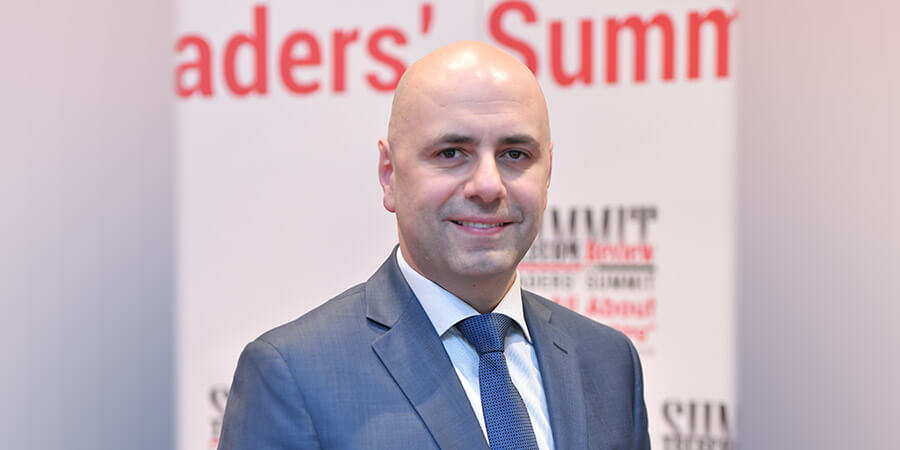Technology is revolutionizing the healthcare sector with new innovations emerging every now and then. E-health was a topic discussed in depth during the 10th edition of Telecom Review Summit held in Lebanon on April 13. H.E. Ghassan Hasbani, Lebanese Minister of Health spoke to Telecom Review about a new e-health initiative which he announced during the e-health panel.
Having a background and a long experience in telecommunications, this wasn't the first time H.E. Ghassan Hasbani participates in the largest ICT gathering in the industry. On attending the event's 10th edition, he said, "I'm glad to see this event grow so fast and become very successful. It's a very good place for people to meet, exchange ideas and come up with new ones".
Shifting from traditional healthcare to e-health can be challenging, especially if the country's health sector hasn't quite evolved lately and rural areas still lack access to primary healthcare services. However, according to H.E. Ghassan Hasbani, shifting to e-health is necessary even if the country wasn't fully ready for it, given the impact it will have at the level of healthcare and economic sectors.
"It's not a mere matter of readiness but a desperate need to leapfrog the development achieved by other countries", he said. "When you introduce technology to a system that isn't extremely advanced technologically, the effect is exponential and the difference shows significantly, particularly in rural areas where people will have access to advanced healthcare services. It makes a huge difference at the level of the economy, health outcomes and public health indicators in general."
He added, "Luckily, when you introduce a new advanced system, you don't have to transfer the old records and systems. You're introducing a Greenfield solution that is much faster, effective and valuable".
In a panel he shared with Dr. Ibrahim Gedeon, CTO, TELUS, Dr. Fadlo Khuri, President, American University of Beirut (AUB) and Mr. Fadi Sidani, Managing Partner, Governance Dynamics, the Lebanese Minister highlighted the efforts undertaken in Lebanon to digitize the health sector by creating, as a first step, a digital health record. In addition, the ministry has developed a series of mobile applications aiming to assist patients in knowing availability in hospitals. Furthermore, H.E. Ghassan Hasbani announced that the ministry will launch, in collaboration with the World Bank, a telehealth program in primary healthcare centers.
"We're introducing in Lebanon the first mass deployment of remote health in primary healthcare centers in the region. It's a technology designed to be deployed at home to connect a patient to his physician remotely with the capability of running around 16 different tests including ACG and sugar levels, etc.," he explained.
"Given that we may not have the right level of readiness to have it at home at the individual level, we're introducing it in primary healthcare centers where technicians and nurses can assist the patients in running the tests. At the same time, those primary healthcare centers are connected to university hospitals so that patients can consult the physicians who can see the test results live."
The most interesting aspect of this new program is that it allows patients in Lebanon to consult with Lebanese physicians living abroad. "Lebanese physicians who have a license to operate in Lebanon can help the Lebanese community by logging in to the system, book consultations and run them with local patients. This gives a large number of people access to quality healthcare," said H.E. Ghassan Hasbani.
Expressing his delight at being able to introduce this revolutionary platform to the Lebanese people, the Lebanese Minister disclosed that early trials have shown that 40% of consultations in primary healthcare centers were done on the remote medicine platform.
Consequently, with the introduction of new digital health platforms and applications, the medical staff has to have the appropriate skills and qualifications which will allow them to be more involved in the digital transformation of the health sector.
"One of the important measures to be taken is to train the medical staff to use technology, especially physicians who have to learn how to save the data and link it to the digital medical records of patients. Raising awareness among patients is also an important mission of the medical staff who has to encourage the patients to use this system," he concluded.










